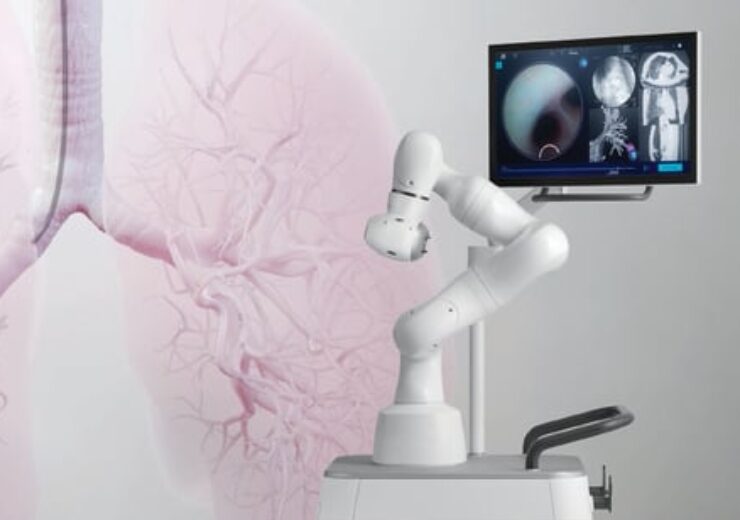Noah Medical intends to use the funds to advance its next-generation Galaxy System, an integrated solution that uses TiLT+ Technology, integrated tomosynthesis and augmented fluoroscopy, and a single-use disposable bronchoscope

Galaxy System features TiLT+ technology. (Credit: Noah Medical)
US-based medical equipment manufacturer Noah Medical has secured $150m in a Series B funding round led by the Softbank Vision Fund and co-led by Prosperity7 Ventures.
The funding round also saw participation from various institutional and strategic investors, including investment management company Tiger Global.
Existing investors Hillhouse, Sequoia China, Shangbay Capital, Uphonest Capital, Sunmed Capital, Lyfe Capital, 1955 Capital and AME cloud ventures, among others, also participated in the funding round.
Noah Medical intends to use the funds to address the growing demand for its next-generation Galaxy System, an integrated solution for navigated robotic bronchoscopy.
Noah Medical founder and CEO Jian Zhang said: “We are a mission-driven startup and appreciate our investors’ support to allow us to scale and deliver on the future of medical robotics.
“Next-generation robotics platforms like the Galaxy System are filling procedural gaps to provide superior clinical values to better serve customers’ needs.
“We are excited to welcome these investors to the team and are eager to grow and serve even more patients and clinicians.”
The funding announcement follows the company’s recent milestone achievements and the US Food and Drug Administration (FDA) approval for the Galaxy System.
Galaxy System uses TiLT+ Technology, together with integrated tomosynthesis and augmented fluoroscopy, and features a single-use disposable bronchoscope.
The advanced scope design comes with an integrated camera for always-on vision and is designed to reach deep into the lung, including the peripheral lung.
With a small and compact footprint, the system is designed to improve procedural workflow for location accuracy and diagnosis of lung nodules.
The technology is designed to overcome CT-to-body divergence and allow for real-time navigation updates and guidance in all areas of the lungs, said the medical technology company.
Recently, Noah Medical commenced first-in-human clinical trials of the Galaxy System at Macquarie University Hospital in Sydney, Australia.
